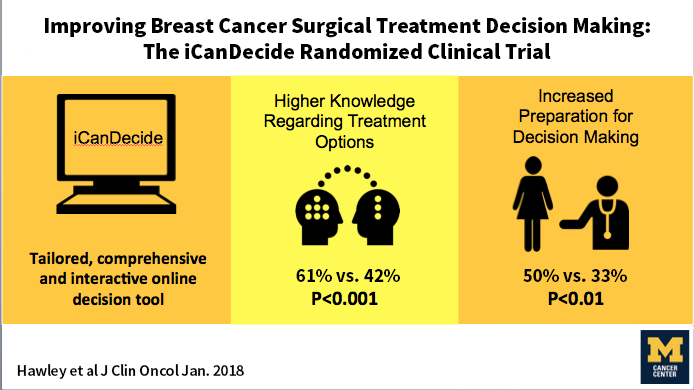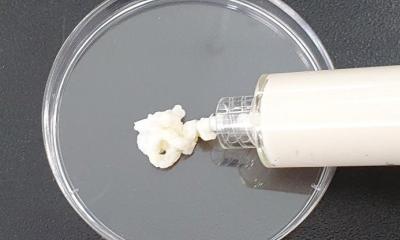News • Interactive tool
Breast cancer: Improving patient knowledge of treatment options
Breast cancer patients face complex decisions about their treatment.

“Knowledge is a key component of decision making, and yet it’s consistently low even among patients who have received treatment. We need better tools to make these decisions more informed,” says Sarah T. Hawley, Ph.D., MPH, professor of internal medicine at Michigan Medicine. Hawley and colleagues from the Cancer Surveillance and Outcomes Research Team at the University of Michigan Comprehensive Cancer Center developed an interactive online tool to help patients understand their treatment options. Compared to a static informational website, patients using the interactive tool had higher knowledge and felt more prepared to make a treatment decision, according to a new study published in the Journal of Clinical Oncology. Researchers enrolled 537 patients with newly diagnosed early stage breast cancer from multiple practices spread throughout four states. Patients were randomized to view a tailored, interactive decision tool called iCanDecide or to view similar information on a static website. They were then surveyed about five weeks later, after making their treatment decision; 496 completed the survey.

If you don’t combine the knowledge and the values, you get people making values-based choices that may not be fully informed
Sarah T. Hawley
Overall, 61 percent of patients who used the interactive tool had a high knowledge of treatment options, compared to 42 percent of patients who viewed the static material. Patients who used the interactive tool were also more likely to say they felt prepared to make a treatment decision, 50 percent, compared to 33 percent of patients viewing static material.
The interactive site was designed to walk people systemically through key facts about breast cancer surgery, such as how often cancer recurs and the likelihood of needing additional surgery. A second module on the website helped patients understand options about systemic treatment, such as chemotherapy. The paper assesses only the surgery module. “Instead of throwing the information on the website and hoping patients would figure it out, we gave them the bullet point fact, asked a question to see if they understood, and then allowed them to drill down and look at more detailed information. They couldn’t just bounce around. They had to go through it in a linear fashion,” Hawley says. The tool also assessed patients’ values, taking them through a series of hypothetical scenarios. In the end, each patient had a customized bar graphic that showed how their preferences matched to treatments. For example, if they valued keeping their natural breast, the lumpectomy bar would be higher. Patients could interact with the figure to learn more.
A similar number of patients from both groups reported making a choice in line with their values. Hawley stresses that assessing a patient’s values is key. “The values clarification is important. If you don’t combine the knowledge and the values, you get people making values-based choices that may not be fully informed,” Hawley says. Researchers plan to further refine the timing of when to deliver decision tools and assess patient values.
Source: Michigan Medicine - University of Michigan
31.01.2018











